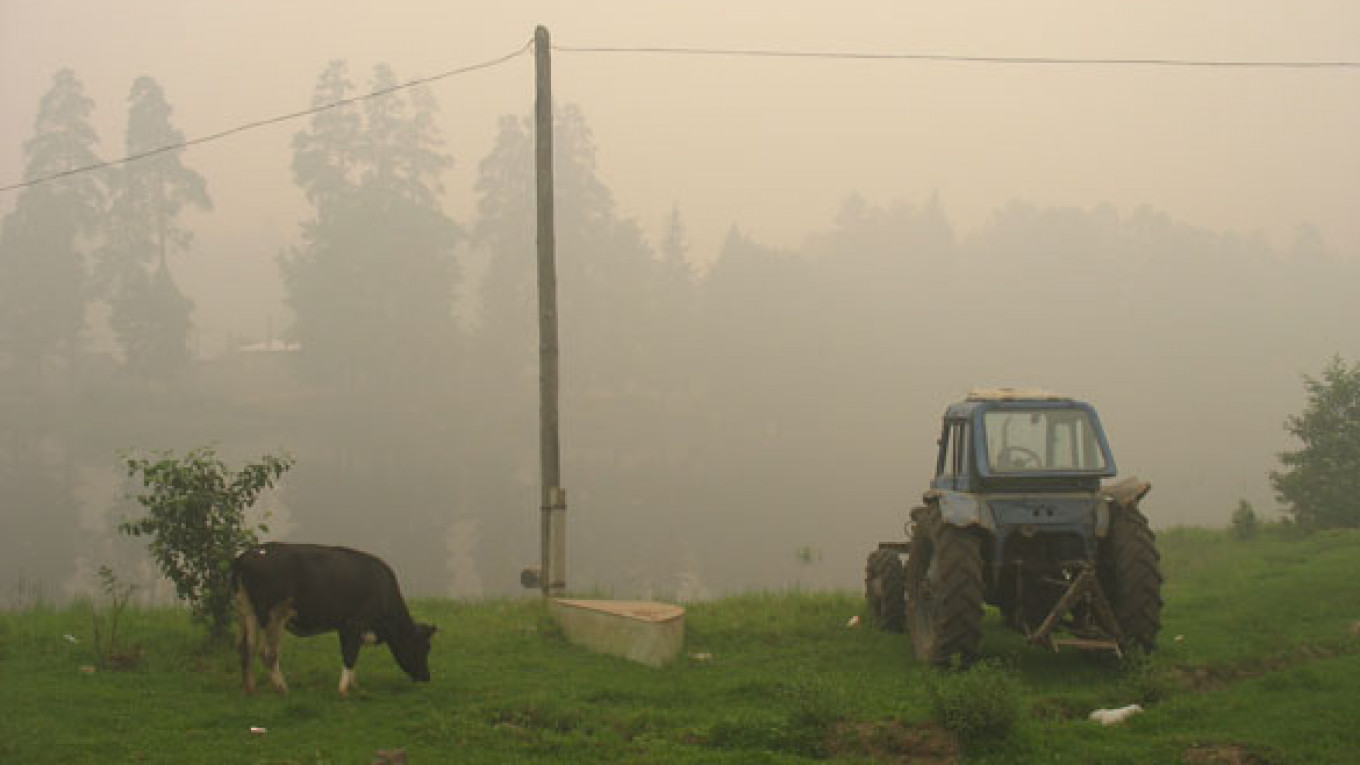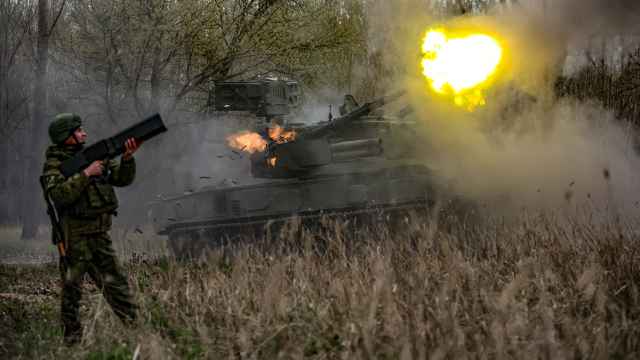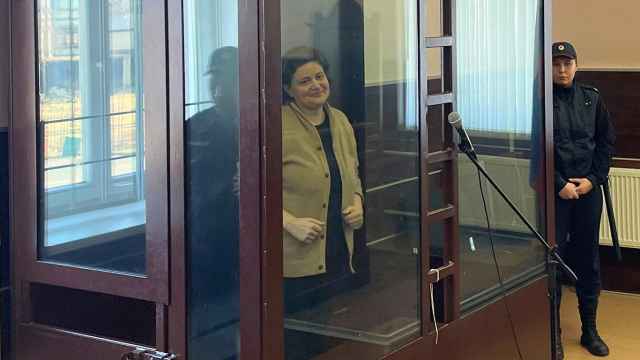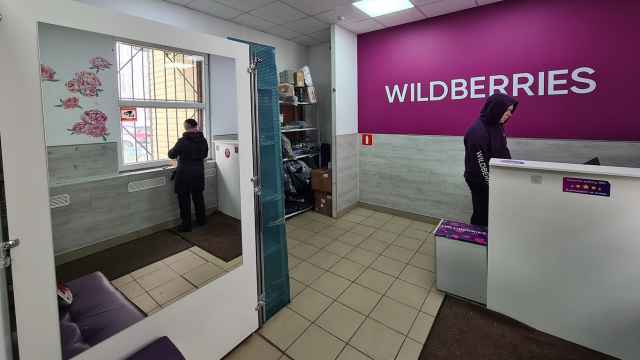Deaths soared nearly 18 percent nationwide last summer amid a heat wave that fanned wildfires and blanketed Moscow with acrid smoke, a new government report said.
Nearly 56,000 more people died in July and August compared with the previous summer, the Economic Development Ministry said in a monthly report on Russia's economy released this week.
"In connection with the unusual heat, forest fires and smoke, 14,500 more people died in July this year and 41,300 more people died in August than during the same period last year," said the report's section about demographics.
Deaths from digestive and circulatory system diseases as well as from cancer increased, the report said.
Moscow and much of western Russia saw temperatures reach 40 degrees Celsius. Forest fires spread fast in late July, and peat fires covered the capital with smoke.
About 374,000 Russians died in July and August, up 17.5 percent from 2009, the report said. In August alone, about 192,000 died, up more than 27 percent from August 2009.
In August, Moscow's health department chief said deaths had nearly doubled in the city to about 700 a day.
There were fewer than 60 official deaths nationwide from the wildfires themselves.
Kremlin critics said legislation approved by Prime Minister Vladimir Putin during his eight-year presidency gutted the country's forest management system and slowed the response to the fires.
But Putin and President Dmitry Medvedev have suffered little political fallout from the wildfires. Opinion polls have shown no significant dip in their approval ratings.
This summer's deaths contributed to a decline in population in the first eight months of 2010 that, despite the arrival of nearly 111,000 migrants, fell by 87,400 people to 141.8 million as of Sept. 1, the report said.
Putin and Medvedev have sought to reverse a persistent post-Soviet population decline, praising parenthood and providing subsidies for families with more than one child.
A Message from The Moscow Times:
Dear readers,
We are facing unprecedented challenges. Russia's Prosecutor General's Office has designated The Moscow Times as an "undesirable" organization, criminalizing our work and putting our staff at risk of prosecution. This follows our earlier unjust labeling as a "foreign agent."
These actions are direct attempts to silence independent journalism in Russia. The authorities claim our work "discredits the decisions of the Russian leadership." We see things differently: we strive to provide accurate, unbiased reporting on Russia.
We, the journalists of The Moscow Times, refuse to be silenced. But to continue our work, we need your help.
Your support, no matter how small, makes a world of difference. If you can, please support us monthly starting from just $2. It's quick to set up, and every contribution makes a significant impact.
By supporting The Moscow Times, you're defending open, independent journalism in the face of repression. Thank you for standing with us.
Remind me later.






